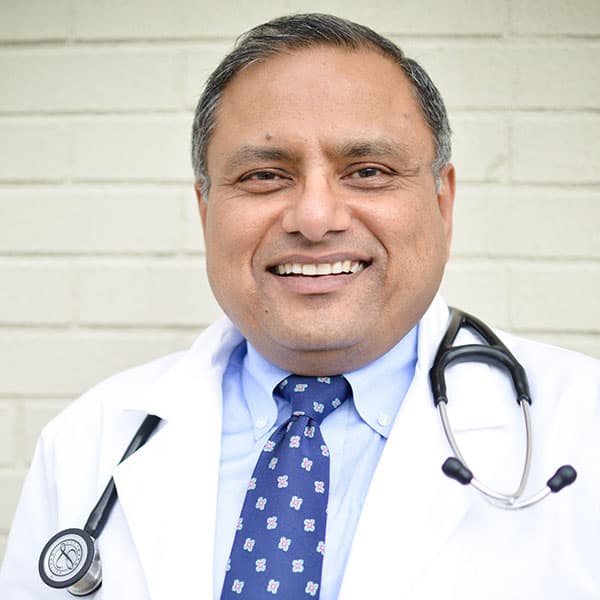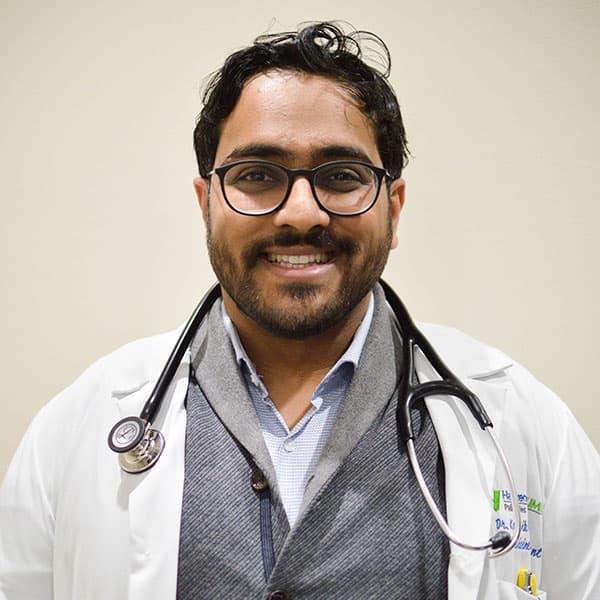Comprehensive Healthcare in New Jersey
Our goal is to save more than your life
Garden State Medical Group provides compassionate, comprehensive care through primary medicine, cardiopulmonary services, radiology, and specialized health programs.
What We Do
Our Specialties
Expert care across multiple medical disciplines, all under one roof.
Primary Care
Comprehensive diagnosis and treatment of common diseases and conditions in adults, including preventive care, wellness education, mental health support, and coordination with specialists.
Learn MoreCardiopulmonary Care
Advanced cardiovascular and pulmonary care for conditions including heart failure, COPD, asthma, coronary heart disease, pulmonary hypertension, and more.
Learn MoreRadiology & Diagnostic Testing
On-site diagnostic imaging and testing services including X-ray, ultrasound, echocardiogram, EKG, bone density, stress tests, PFT, and MRI for timely, accurate diagnosis.
Learn MoreAbout Our Practice
Driven by Diversity
At Garden State Medical Group, we are defined by our collective philosophy to provide comprehensive and individualized care for what ails people physically and mentally. Our board-certified physicians practice multidisciplinary integrative and functional medicine with a focus on prevention, management and education.
Learn More About UsOur Programs
Specialized Health Programs
Targeted programs designed to address specific health needs and improve outcomes.
Chronic Care Management
Coordinated care for Medicare patients with 2+ chronic conditions such as arthritis, diabetes, depression, and high blood pressure — including personalized care plans, phone check-ins, and 24/7 emergency access.
Learn MoreHeart Smart Program
Educational sessions, exercise regimens, heart rhythm monitoring, nutritional management, and preventive testing including ABI, echocardiogram, EKG, Holter monitor, and stress tests.
Learn MoreBone Health and Vitality Program
Diagnose, prevent, and manage bone loss through bone density testing, nutritional guidance, preventive and therapeutic action, and X-ray services.
Learn MoreLung Health Program
Comprehensive management of pulmonary conditions with tools including arterial blood gas analysis, bronchoscopy, lung cancer screenings, pulmonary function testing, and sleep studies.
Learn MoreDiabetes Prevention and Education Program
Type 1 and type 2 diabetes education, prevention, and management — including medication management and research-based prevention strategies.
Learn MoreMemory and Cognition Care Program
Support for patients with memory problems and their caretakers, including cognitive assessments, IQ testing, medication management, memory screenings, and the eVox diagnostic system.
Learn MoreWeight Loss Programs
Individualistic approach to weight loss and treatment of obesity with a holistic therapeutic approach, including medication and dietary recommendations.
Learn MoreOur Team
Meet Our Providers
Board-certified physicians dedicated to your health and well-being.
Visit Us
Our Locations
Conveniently located in North Bergen and Secaucus, New Jersey.
North Bergen
9225 Kennedy Blvd., Suite B, North Bergen, NJ 07047
Hours
Secaucus
1265 Paterson Plank Rd., 1st Floor, Secaucus, NJ 07094
Hours
Insurance
Accepted Insurance Plans
We accept most major insurance plans. Contact us if you don't see yours listed.
Latest News
From Our Blog
Health tips, practice updates, and insights from our providers.
Why Should People Continue Tracking Their Medical History?
Medical history is a record of a person's medical past. It includes information about all the medical conditions a person has had and any medications or other treatments they have received. It can be beneficial in diagnosing and treating new medical conditions. However, tracking medical history can
Read MoreThe Various Advantages of Tracking Your Medical History
Tracking your medical history is an important step in maintaining your health. By keeping track of your health information, you can ensure that you receive the best possible care and treatment, no matter what you may come across in the foreseeable future. That being said, if you are still unconvince
Read More7 of the Most Common Symptoms of Diabetes to Look Out For
It's a well-known fact that we become more susceptible to more conditions as we age. After all, our immune system wears down with age, so taking care of our health is necessary. However, some conditions don't discriminate and can affect anyone at any age. A perfect example of this is diabetes. Diabe
Read MoreReady to Schedule Your Visit?
Our team is here to help. Call us or request an appointment online to get started on your path to better health.


